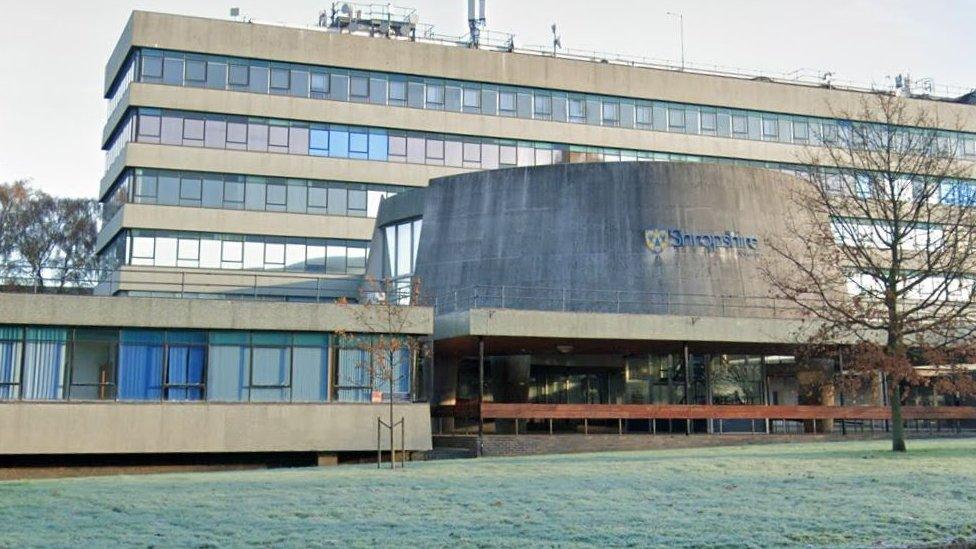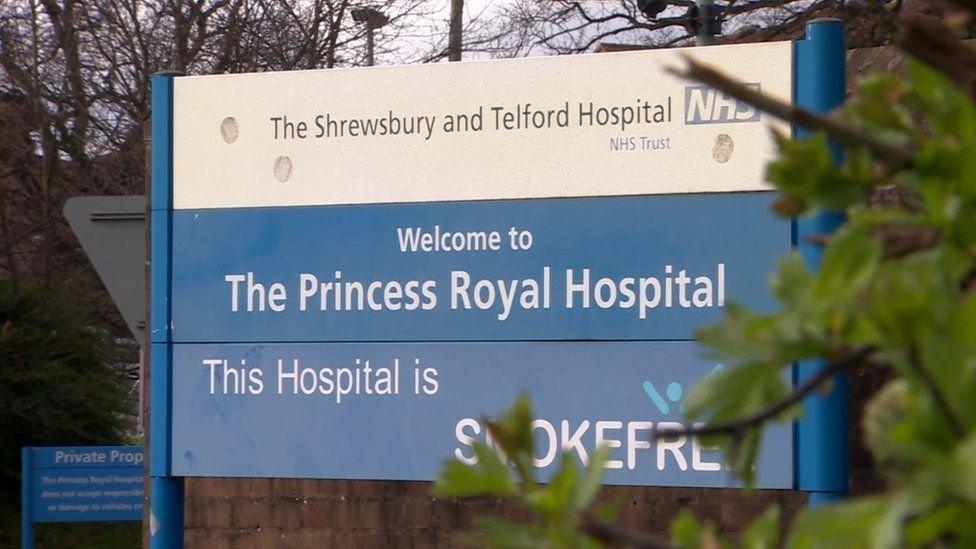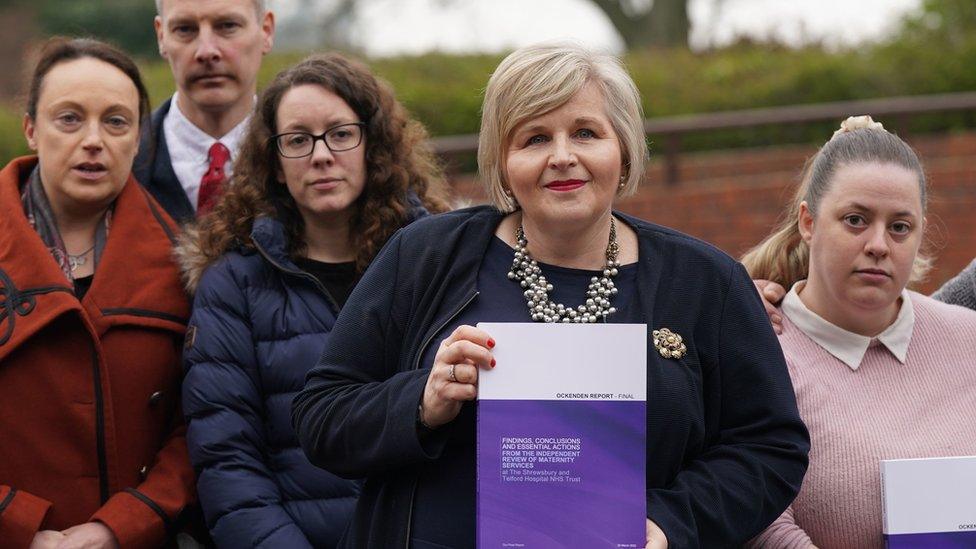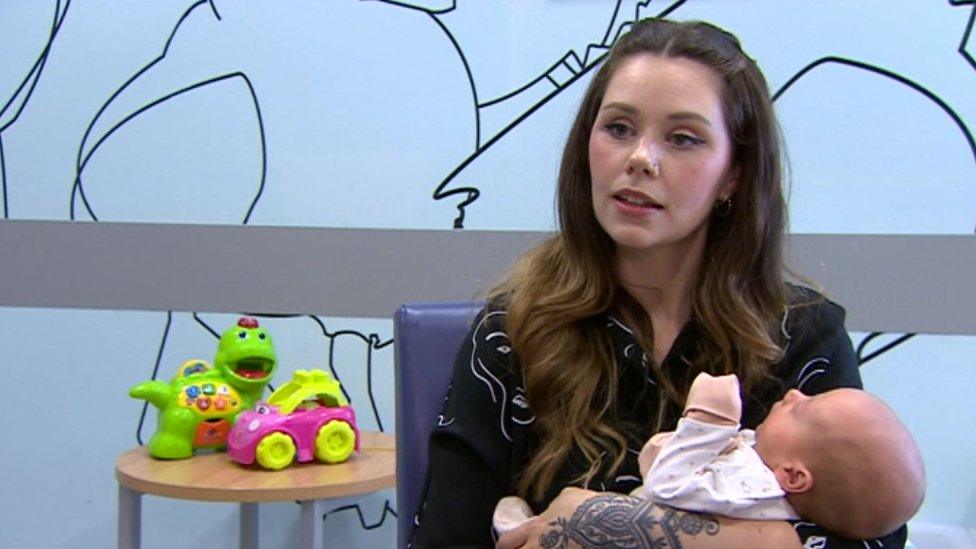Telford baby's death at scandal-hit trust was preventable
- Published

Neil and Katie Russell said the hospital had tried to blame them for what happened
The death of a baby was preventable as her heart rate was not effectively monitored, a coroner has recorded.
Poppy Russell died a few hours after her birth on 11 April 2021 at Princess Royal Hospital in Telford.
Her parents said the hospital trust had tried to blame them for what had happened which was "unforgiveable".
The Shrewsbury and Telford Hospital Trust, which has been the subject of a maternity services review, said there had been failings in Poppy's care.
The Ockenden Report found failures at the hospital trust contributed to the deaths of more than 200 babies - with a failure to monitor hearts properly a key factor in many losses.
Emergency caesarean section
Poppy had been delivered by emergency caesarean section at 03:45 BST and died at 15:35.
In his determination, senior coroner John Ellery said there would have been signals between 02:00 and 03:15 that Poppy was suffering and displaying symptoms of intermittent compression of her umbilical cord.
"These signals should have been picked up and in the situation which unfolded there was a failure to do so leading to Poppy's preventable death," he said.

Coroner John Ellery ruled at Shire Hall that Poppy Russell's death is preventable
Poppy's medical cause of death was perinatal asphyxia, a lack of blood flow or gas exchange to the baby before, during, or after birth.
In the report Mr Ellery said an independent expert had told the inquest that Poppy would have survived if she had been delivered by 02:45.
In his determination, he said effective monitoring of Poppy's foetal heart rate was not taken.
He added Poppy's parents had disagreed with statements made by the trust to the Healthcare Safety Investigation Branch over whether Mrs Russell had declined continuous heart monitoring during the birth.
But he said Mrs Russell's birth plan showed the first on her list of her priorities was regular monitoring of the baby's heart, and added it was "inconceivable that she would have changed her mind and wanted anything less".
He recommended the trust makes mothers aware of the different types of foetal monitoring, that staff get support when patients go into the second stage of labour to increase intermittent monitoring and that they are able to complete this monitoring in line with national guidance.

Poppy Russell died shortly after her birth at Princess Royal Hospital in Telford
Poppy's parents Katie and Neil Russell, of Rodington, said they were heartened by Mr Ellery's conclusion and would continue to campaign for change.
"Throughout the process the trust has blamed us," they said.
"This is unforgivable and we hope the coroner's finding of neglect makes them reflect on the way the trust tried to hold us accountable for Poppy's death.
"We will not stop until those individuals and those at the highest level are held to account for their hideous and systemic failures and continued strategy of covering up neonatal death."
They also called on Secretary of State for Health and Social Care Steve Barclay to make safe maternity care a "priority".

The trust was previously the subject of an inquiry into maternity care following a campaign by parents
Recently the trust spent £300,000 on wireless heart monitors in a bid to improve survival rates.
Hayley Flavell, director of nursing said: "We recognise there were failings in the care we provided and we are truly sorry."
She said the death of any baby is a "tragedy" and the trust has made "clear improvements" to maternity services since 2021 but there is still "further to go".

Follow BBC West Midlands on Facebook, external, X, external and Instagram, external. Send your story ideas to: newsonline.westmidlands@bbc.co.uk, external
Related topics
- Published2 October 2023

- Published30 March 2022
